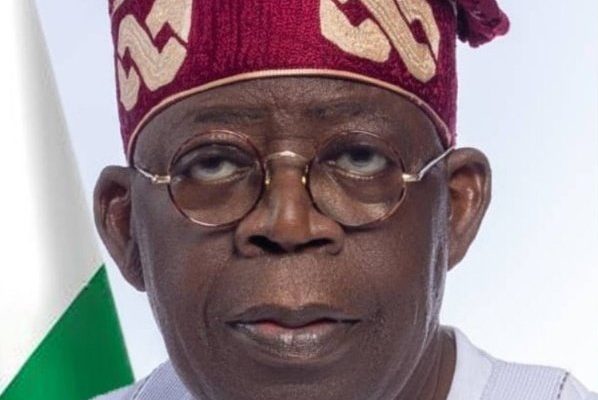By Olusegun Oruame
By May 29, 2023, the President-elect, Bola Ahmed Tinubu, will officially become the Commander-in-Chief of the Armed Forces to usher in a new democratic dispensation as Executive President of Nigeria.
IT Edge News.Africa peeps into how the ICT, digital economy sector will play out under a Tinubu administration through the opinions of stakeholders and the manifesto of Tinubu-led All Progressives Congress (APC) government.
Despite economic difficulties marked by dwindling foreign earnings in the last decade, ICT with digital economy has remained one of the most promising sectors under the Buhari government contributing over 18% to the country’s GDP.
RELATED: Minister thrilled over unprecedented 18.44% highest ever ICT contribution to Nigeria’s GDP
But there have been persistent headwinds cutting down business prospects and forcing many ICT companies to either downsize or simply go comatose with thousands of their staff embracing the ‘japa’ syndrome to seek newer opportunities in Europe, US and rest of the globe.
Businesses, not just technology enterprises, already overwhelmed with economic difficulties are also over-taxed as government desperately seeks money to settle its own obligations.
Tinubu has expressed willingness to address some of these challenges.
The Ministry of Communications & Digital Economy with the agencies under it are at the heart of the in-coming government’s agenda to drive early results.
“Promote IT to boost industrial creativity while spurring the financial inclusion of larger segments of the population by encouraging greater use of innovative new technology.”
In his manifesto with 16-point action plan, he laid out how his government will address issues of the digital economy, national security, youth empowerment & entrepreneurship, the economy, entertainment & culture, agriculture, power, oil & gas, transportation, healthcare, sport, women empowerment, social programs, judicial reforms, federalism/decentralization of power and foreign policy.
Tinubu stated in the manifesto: “We will: (i) extend tax and other credits as well as urban youth employment incentives to domestic manufacturing entities. Tariffs and other measures will be implemented to safeguard such industries. (ii) encourage domestic manufacturers and producers to add value to basic products thus promoting value-added industry and production.
According to the president-elect, “these incentives will include lower import tariffs on semi-manufactured goods production lines such as the automotive and IT industries (iii) Develop major and minor industrial hubs in each geopolitical zone. (iv) Promote IT to boost industrial creativity while spurring the financial inclusion of larger segments of the population by encouraging greater use of innovative new technology. (v) Provide tax credits, holidays and reduced interest rate loans to businesses that hire a certain percent of youth in their workforce and provide genuine on-the –job training and mentoring for their young employees.”
The Tinubu government envisions focusing on investing and expanding opportunities for young people.
“Our youths shall become a leading catalyst driving the economic resurgence. This goes beyond the provision of decent jobs. It speaks of empowerment of those who see their future as starting and owning businesses in the new economy,” said Tinubu.
Adding: “It goes to opening the economy in a way that encourages the best that the modern digital and IT-driving sectors have to offer existing industries and sectors, we will be brave and innovative enough to see how new economic vistas powered by today’s technology can create jobs and provide goods and services that will propel us toward greater prosperity and development.”
For many stakeholders, the Tinubu government must set itself aside from the usual ‘all talk, no show’ of most politicians. “This government has little room to maneuver outside of just delivering on quick, good results. The country has been through long nights of economic shackles that only a sense of early respite will be acceptable,” said one CEO of a tech company in Lagos.
Director & Founder, Fantsuam Foundation, Dr John Dada, sees things in similar vein. “Successive administrations have treated digital inclusion as a privilege to Nigerians. The recent poorly executed cashless policy was a death knell to the Nigerian informal economy. The calculation of a GDP that excludes the informal economy cannot give the true picture of Nigeria’s economic growth and performance.
“I hope the incoming administration will see the opportunities inherent in supporting the rural, informal economy to become digitized. Tinubu must correct this anomaly and do itself a favour through accelerated digital inclusion of the rural, unserved, informal economy,” said Dada in Kafachan town, Kaduna state, north western Nigeria where Fantsuam operates.
Another expert in Lagos said Tinubu’s track record in Lagos could mean business orientation will be readily infused into how things work and “certainly define how the sector operates” going forward.
“Our youths shall become a leading catalyst driving the economic resurgence. This goes beyond the provision of decent jobs. It speaks of empowerment of those who see their future as starting and owning businesses in the new economy,”
His words: “I believe that the new federal government will prioritize digital transformation, particularly in governance, by promoting public sector innovation to enhance government operations and effectiveness and for improved revenue generation in particular.
“Additionally, I expect it will prioritize private sector involvement in the sector to achieve its economic objectives. While the government will attempt to leverage digital technologies to drive economic growth, the key challenge is whether it will ensure that a balance that enables these technologies to use to improve citizens’ quality of life, expand job opportunities, and foster inclusive growth for Nigerians.
“Another challenge is whether the government is able to demonstrate the political will to address policy and regulatory challenges that hinder telecom infrastructure development, such as multiple taxation, right of way, and bureaucratic bottlenecks.
“In my view, the government will promote greater utilization of digital technologies by focusing on digital literacy, human capital development in ICT, and youth innovation. However, the question still remains whether the government will adopt inclusive approaches or stick with the status quo. Furthermore, the government’s level of commitment to local technology research and development is also a critical factor to consider.”
Co-Founder of Precise Financial Systems (PFS) and former president of the Institute of Software Practitioners of Nigeria (ISPON), Dr. Yele Oekeremi, told IT Edge News.Africa in Lagos “My opinion is that the ICT sector should be made to work for Nigeria and Nigerians. The coming government should encourage local tech firms to scale. They should be encouraged to develop their muscles by starting with solving smaller problems using local technology and gradually advancing to more complex challenges. I believe in positive affirmative actions towards local tech firms with a view to developing them to regional and global players.”

International Finance Corporation: Digital Growth Drives Nigeria’s Economy Forward
New vim in target areas
In summary, the Tinubu government will certainly be seeking to put more vim in potential targets in respect of the ICT, digital economy sector. These areas include:
Broadband penetration: Nigeria is aiming to achieve 70% broadband penetration by 2025. This will require significant investments in broadband infrastructure and policies that encourage the development of the telecoms industry. The Tinubu’s manifesto appears to have identified a support pull to attract investment into broadband expansion.
E-commerce growth: with a horde of operators in this sub-sector, Nigeria is currently one of the fastest-growing e-commerce markets in Africa. The government cannot but bring policies to reinforce growth by setting targets to increase the number of online businesses, improve logistics and delivery systems, as well as create policies that foster innovation and entrepreneurship.
Digital skills development: the Tinubu manifesto directly ties into this focus and for obvious reasons. With a large youth population, Nigeria has an opportunity to develop digital skills and create a competitive workforce. The government cannot but expand on the already existing initiatives in this realm setting new targets to increase the number of digital skills training programs, expand access to education, and encourage the private sector to invest in talent development.
Fintech innovation: Nigeria’s fintech sector has gained significant global attention as it has experienced tumultuous but positive growth in recent years. The government has its tasks cut out for it here to increase the number of fintech startups, improve regulatory frameworks, and create policies that encourage financial inclusion and digital payments.
Data Protection: Nigeria enacted the Nigeria Data Protection Regulation (NDPR) in January 2019, a comprehensive data protection framework that aims to safeguard the personal data of Nigerian citizens and residents. It is based on international best practices and aligns with the General Data Protection Regulation (GDPR) of the European Union. Since 2019, the country has made progress to create a Nigeria Data Protection Bureau (NDPB). There are currently moves to create an Act of Parliament for data protection to give teeth to the data protection ombudsman and set the stage for a proper entry into the global data economy. This is one area stakeholders expect the Tinubu government to accelerate legal, policy and administrative action plans.
Cybersecurity: This cannot be ignored as Nigeria becomes increasingly digital, the risk of cyber threats and attacks will grow. Yes! There are already numerous efforts to play strong in this arena. But a lot needs to be done in terms of catch-up. Encouragingly, the Tinubu government appears to have cybersecurity in focus and within a broader framework to quote its manifesto document: “Our government will implement measures to eliminate attacks on vital national infrastructure. This will be known as our (Critical Infrastructure Protection) CIP Plan. Integral to this effort shall be the deployment of modern technologies, tools, and equipment to end crude oil theft, prevent vandalism of national assets, and reduce, to the barest minimum, environmental pollution of the Niger Delta.”
The government clearly has no alternative to setting definable targets to improve cybersecurity infrastructure, increase awareness of cyber threats, and develop policies to protect citizens and businesses.

































